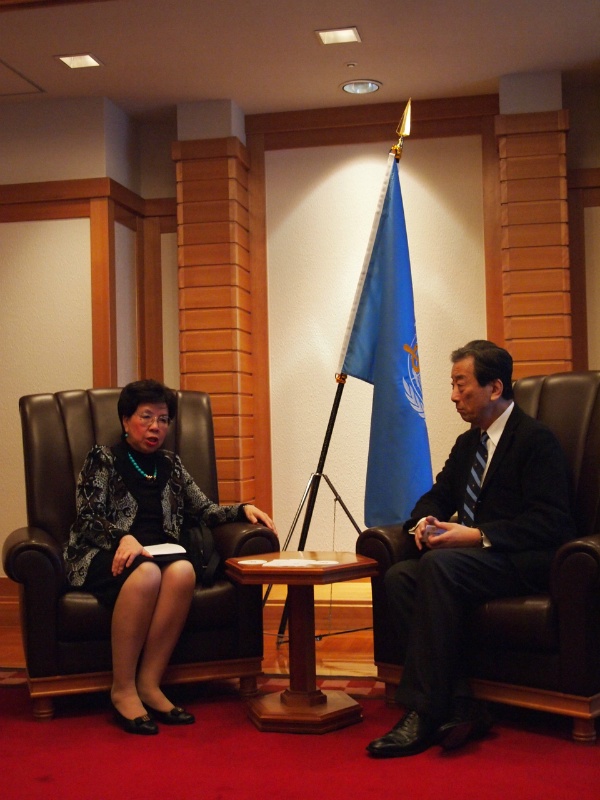→Japanese
Japan’s insularity or closed mindset is now becoming so evident that we can no longer wait for social structure reform to resolve this problem. Many media reports as well as opinions from various fields in the society continuously point out the seriousness of the Japanese closed, insular mindset. This problem, however, is not new at all.
This way of seeing refers not only to the youths, but as well as to the adults. While many intellectuals point to the students as being inwardly focused, I believe that parents have a strong influence, and therefore should be held accountable for passing on these unprogressive mindsets.
As Japan grew in economic strength and prosperity combined with the publication of 'Japan as Number One' , National pride also grew. The baby boomer and subsequent generations accustomed to this status had to adjust their attitudes into a more defensive stance as the Cold War ended in 1991 followed by the Japanese economic bubble bursting in 1999. Not to mention the advent of the internet, globalization, a dynamic restructuring of 14 city banks, the bankruptcy of Yamaichi Securities, a skyrocketing national deficit and stagnating GDP.
Therefore, I suppose, current college students grew up without being given any sense about a positive economy. (in Japanese)
All of the things I’ve said so far are the same as what I have written here so many times.
For a change, let me introduce you to some examples of the wonderful activities of college students who took leave of absences from school (Ref.1,2,3,4,5).
And here is my small report on AIESC, an international internship network run by college students.
However, I regret to say that there are millions of obstacles that must be overcome in order for these kinds of activities to flourish. For example, in many private universities, they charge various fees of students even on leave. From my point of view such conduct is deplorable. Being supported while traveling and experiencing the world is taken for granted in other parts of the world. Such attitude makes Japan’s unwillingness to encourage international experience that much more evident. I ask all university related persons to be quick in crafting ways to stop these kind of disgraceful procedures.
Staggering economy is bad enough, but with high education fees combined, I must say that Japan is a nation that neglects future human assets. We cannot expect any positive future for a nation like this. Not only university administrations but Japanese government will also have to do a better job .
Just recently, I had an opportunity to see Japanese students from AIESEC Japan (sadly, this site is only in Japanese…), a Japanese branch of AIESEC the world wide student run organization working to promote international internships. Now, we are trying to find how to empower their activities, make this organization known to people, to gain support. Of course it goes without saying, companies will also gain a variety of great merits by providing support to such students’ activities.
If the website of AIESEC Japan is written in English as well as in Japanese, their activities will contain broader perspectives. For instance, not only can they send students abroad, but they will also be able to offer international students internship opportunities at Japanese companies. The problem is that the current system fails to take into account the needs of the counterparts. We discussed this issue also in specific manners.
Recently a high official at the Ministry of Education (I won’t say the specific name) who I have once worked with started a blog (in Japanese). From his blog I could see how he supported my ideas, or is helping students in his own way (Ref.1) ( both links are in Japanese). I was thrilled to discover this. He also gave a wonderful lecture (in English) at a recent meeting (in Japanese) that included much of his own thoughts. I was told that the lecture was well received by the audience for its originality and strong message, all very unlike typical government officials. I would like to express my sincere gratitude to this official for supporting my views.
I am aware that there are many more people who understand and support my ideas besides people in the Ministry of Education, but on a whole, it seems that making policy takes more than understanding. I do understand that there are many reasons and conditions particular to the posts they are in.
It must also be understood that another problem lies in the fact that educators in junior high schools, high schools, or universities are far from doing their best in nurturing talents for the global age(Ref.1,2, 3 in Japanese), (Ref.4,5 in English). We must not forget that the trends of the world moves rapidly.
As for the argument on whether it is good or not that active officials write a blog, I think there is nothing wrong with it because the blog is a tool to express personal views. It’s a way to interact with a diverse community, and besides, what they write on the blog is far from being a secret.

